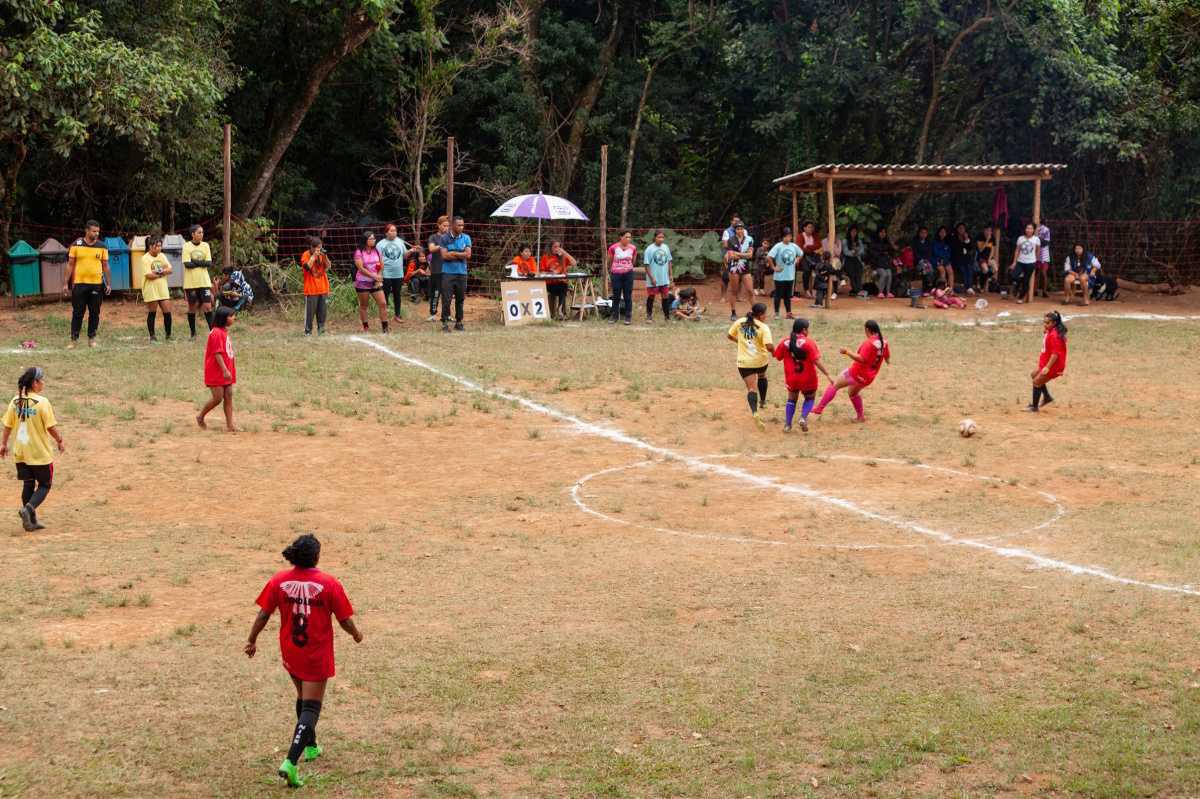The objects on display in this section are part of the nhandereko, a Guarani term that means "our way of being." In addition to traditional items, other objects have also become part of the nhandereko, such as soccer balls and cameras.
Today, there are many female soccer players, photographers, and filmmakers in the village. They are also masters of the arts of basketry and beading. In addition to necklaces and earrings, they make bracelets adorned with the emblems of professional and village sports teams.
Like many women who look after and protect the culture, they are guardians. They care for their opponents as well as the young, elderly, and pregnant women. This characteristic is evident in the soccer they play, which is open to anyone who wants to play.
They are xondarias (warriors). "Guardiãs" and "Xondarias" are also the names of teams in the Jaraguá Indigenous Territory. Beyond the pitch, being a Guarani woman means being a guardian xondaria.
Today, soccer is an integral part of the women's daily life in the Jaraguá villages, but it hasn't always been this way. Older women say they had to fight for a place on the pitches.
Gradually, men began to respect their game. Nowadays, however, many men encourage and help look after the children while the women play.
Games usually take place on weekends at the Itakupe tekoa (Guarani village) or at the neighboring Sol Nascente community. Players from Jaraguá and the Ytu, Pyau, Itakupe, Itawera, Itaendy, Yvy Porã, and Pindó Mirim tekoas all meet on the pitch.
Before they had teams and uniforms, girls and women from the "lower" (Ytu) and "upper" (Pyau) villages—the two oldest in Jaraguá—used to meet in the old Pyau field, where a school is being built today.



